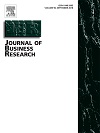A satisficing approach to eliciting risk preferences

A new approach is proposed to eliciting risk preferences by framing choice over risky payoff distributions as a satisficing task. We demonstrate novel links between the information elicited from the satisficing task—which allows subjects to consider accepting a worse worst-case outcome in favor of a better best-case outcome—and portfolio choice using expected utility theory (EUT). The key tradeoff in our satisficing task can also be stated in reverse: to consider accepting less attractive potential upside gains in order to improve worst-case outcomes. Risk preferences are elicited by asking subjects to choose an acceptable worst-case portfolio outcome from a continuum of binary gambles, each with its own support and unique minimum. The worst-case aspiration represents the smallest low-state payoff in the binary gamble that the subject is willing to accept. We show analytically and empirically that choosing a most preferred worst-case aspiration maps into a logically equivalent—but psychologically distinct—process of expected utility maximization (i.e., allocating one's savings over a binary risky asset and risk-free bond using the EUT framework with a unique risk-acceptance parameter under CARA or CRRA risk preferences).
A satisficing approach to eliciting risk preferences

A new approach is proposed to eliciting risk preferences by framing choice over risky payoff distributions as a satisficing task. We demonstrate novel links between the information elicited from the satisficing task—which allows subjects to consider accepting a worse worst-case outcome in favor of a better best-case outcome—and portfolio choice using expected utility theory (EUT). The key tradeoff in our satisficing task can also be stated in reverse: to consider accepting less attractive potential upside gains in order to improve worst-case outcomes. Risk preferences are elicited by asking subjects to choose an acceptable worst-case portfolio outcome from a continuum of binary gambles, each with its own support and unique minimum. The worst-case aspiration represents the smallest low-state payoff in the binary gamble that the subject is willing to accept. We show analytically and empirically that choosing a most preferred worst-case aspiration maps into a logically equivalent—but psychologically distinct—process of expected utility maximization (i.e., allocating one's savings over a binary risky asset and risk-free bond using the EUT framework with a unique risk-acceptance parameter under CARA or CRRA risk preferences).
